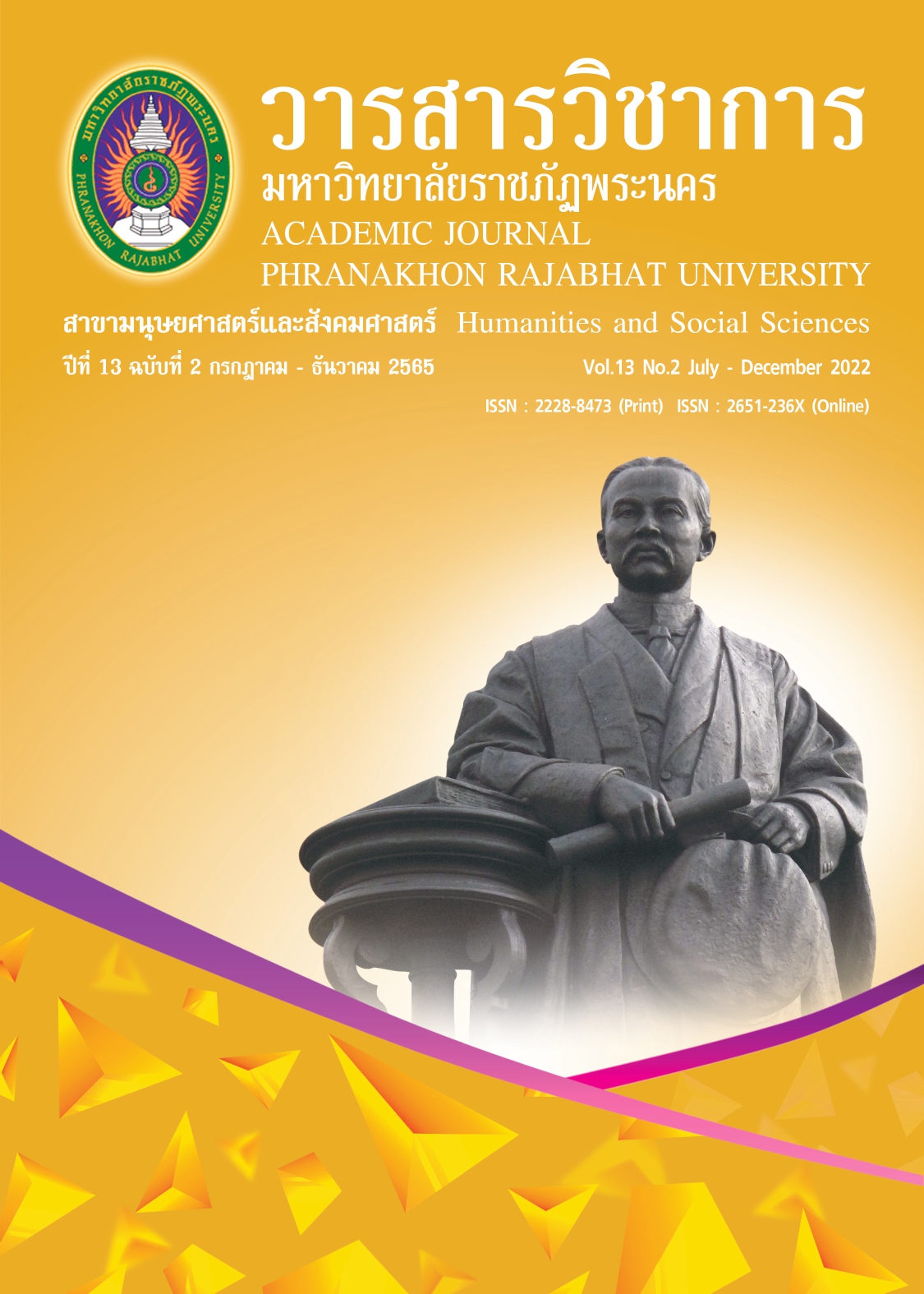A MARGINALIZED TRIBESMAN BECOMING A DIPLOMAT: A NARRATIVE APPROACH ANALYSIS
Keywords:
Tribesman, Diplomat, Narrative approach, MarginalizationAbstract
In this article, the researcher used a storytelling as a research tool to give an insight on a life of a Karen tribesman who has spent over 10 years preparing himself to pass the challenging examinations to become a career diplomat in the Ministry of Foreign Affairs of Thailand. The researcher investigated the subject’s ethnicity, education, motivation, and English language study. A series of interviews was analyzed for their contexts, an adaptation from Gary Barkhuizen’s narrative research supported by documentary research on psychological impacts from visualization, self-motivation and socioeconomic of the marginalized people. This longitudinal study includes the researcher’s reflexive personal commentary throughout the article as he has observed the subject’s life continuously for over a decade. The finding resulted in the reassurance of strong intrinsic motivation, goal setting and the pursuit of higher education and skills that lead to the subject’s success.
References
Abinger Institute. (2017). Mindset drives behavior. Retrieved July 1, 2022 from https://arbinger.com/difference.html
Araoz, C. F. (2014). It’s not the how or the what but the who: Succeed by surrounding yourself
with the best. Massachusetts: Harvard Business Review Press.
Aung, M. N., Lorga, T., Srikrajang, J. Promtingkran, N., and Kreuangchai, S. (2012). Assessing awareness and knowledge of hypertension in an at-risk population in the Karen ethnic rural community, Thasongyang, Thailand. International Journal of General Medicine, 5, 553-561.
Australian Karen Foundation. (2022). The Karen people. Retrieved July 20, 2022 from https://australiankarenfoundation.org.au/karen_people_18.html
Barkhuizen, G. (2016). A short story approach to analyzing teacher (imagined) identities over time.
TESOL Quarterly, 50(3),655-683.
Bundidterdsakul, L. (2019). Local context, national law: The rights of Karen people on the Salween
River in Thailand. The Antropocene: Politik-Economics-Society-Science, 27, 141-158.
Covey, S. (1999). The 7 habits of highly effective people. London: Pocket Books.
Dweck, C. (2016). Mindset: the new psychology of success. New York: Random House.
Draper, J. (2019). Language education policy in Thailand. New York: Routledge.
Frankenhuis, W.E. and Nettle, D. (2020). The strengths of people in poverty. Current Directions
In Psychological Science, 29(1), 16–21.
Goggins, D. (2018). Can’t hurt me: master your mind and defy the odds. New York: Lioncrest Publishing.
Human Rights Watch. (2010). From the tiger to the crocodile: Abuse of migrant workers in
Thailand. Retrieved July 2, 2022 from https://www.hrw.org/report/2010/02/23/tiger-crocodile/abuse-migrant-workers-thailand
IPF-Indigenous Peoples’ Foundation for Education and Environment. (2018). Synthesis report on marginalization of vulnerable indigenous peoples in Thailand. Bangkok: IPF-IKAP.
Khamkhong, Y. and Satchapapphichit, S. (2021). Growth mindset: change now for the future success. Academic Journal Phranakhon Rajabhat University, 12(2), 369-383.
Khaosod. (2019). Opinion: why don’t Thais read? Retrieved July 5, 2022 from https://www.
khaosodenglish.com/opinion/2019/04/29/why-dont-thais-read-opinion/
Kristina, H. (2018). What is your mindset? A Harvard Study. Retrieved July 24, 2022 from https://medium.com/publishous/what-is-your-mindset-a-harvard-study-f85318ef9b2f
Legg, T.J. (2019). Intrinsic motivation: how to pick up healthy motivation techniques. Retrived June 3, 2022 from https://www.healthline.com/health/intrinsic-motivation
Minority Rights Group International. (2022). World directory of minorities and indigenous
peoples: Thailand. Retrieved July 22, 2022 from https://minorityrights.org/country/ thailand/
Monmuang, D., Chaowakeeratiphong, T. and Sompongtham, C. (2017). Development of school
administrative strategies of schools located in the mountainous areas and western bordered region under the Office of Primary Education in Tak. Journal of Education Naresuan University, 19(2), 1-11.
Pawa, A. (2021). This exhibition aims to destigmatize indigenous Karen traditions. Retrieved
July 21, 2022 from https://bk.asia-city.com/arts/news/exhibition-aims-to-destigmatize-indigenous-karen-traditions
Ryan, R.M. and Deci, E.L. (2000). Intrinsic and extrinsic motivations: classic definitions and new
directions. Contemporary Education Psychology, 25(1), 54-67.
Szente, J. (2007). Empowering young children for success in school and in life. Early Childhood
Education Journal, 34(6), 449-453.
Tienboon, P. and Wangpakapattanawong, P. (2007). Nutritional status, body composition and health conditions of the Karen hill tribe children aged 1-6 years in Northern Thailand. Asia Pacific Journal of Clinical Nutrition, 16(2), 279-285.
Trupp, A. (2014). Ethnic tourism in northern Thailand: Viewpoints of the Akha and the Karen. Vienna: University of Vienna.
Downloads
Published
How to Cite
Issue
Section
License
Copyright (c) 2022 Academic Journal Phranakhon Rajabhat University

This work is licensed under a Creative Commons Attribution-NonCommercial-NoDerivatives 4.0 International License.
"บทความวิชาการในวารสารฉบับนี้ ถือเป็นความรับผิดชอบของผู้เขียนเท่านั้น"
สงวนลิขสิทธิ์ตามพระราชบัญญัติลิขสิทธิ์




